Department of Management Sciences
Business NEWS VOLUME 33
Hochschule Bonn-Rhein-Sieg University of Applied Sciences
Volume 33 - winter semester 2020/2021
Dear Readers,
We are pleased to present our newsletter of the Department of Management Sciences for the two locations Rheinbach and Sankt Augustin for the 2020/21 winter semester. It contains plenty of information about campus life and our department. If you have any suggestions, wishes or improvements, please don't hesitate to contact us. We appreciate your opinions.
Dipl.-Betriebswirtin (FH) Anne Schaefer, Rheinbach Campus
Dipl.-Betriebswirtin (FH) Sonja Atai, Sankt Augustin Campus
- Elective - Tour de Corporate Social Responsibility - Discover the EU
- International teaching project: Codeshare Teaching and Learning
- Prof. Dr. Krickhahn appointed adjunct professor
- Christina Pakusch defends her dissertation
- New partner universities for our department
- „Programme for Excellence“ during Corona - new lecturers
- Textbook on migrant entrepreneurs
- Portrait of Prof. Dr. Boden
- Practical projects
- Completion of practical project "Modelling of departmental processes and creation of a process map"
- New publications of our department
- News and events
- Legal notice
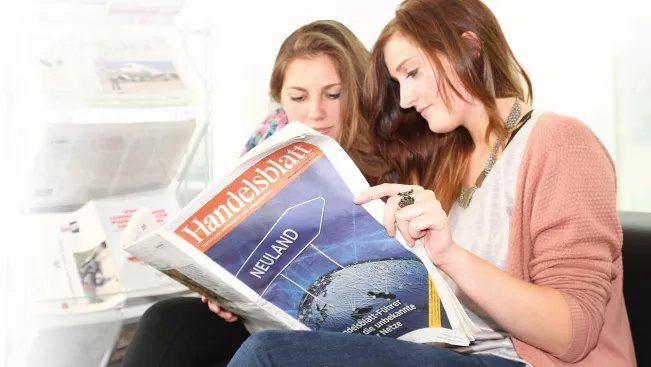
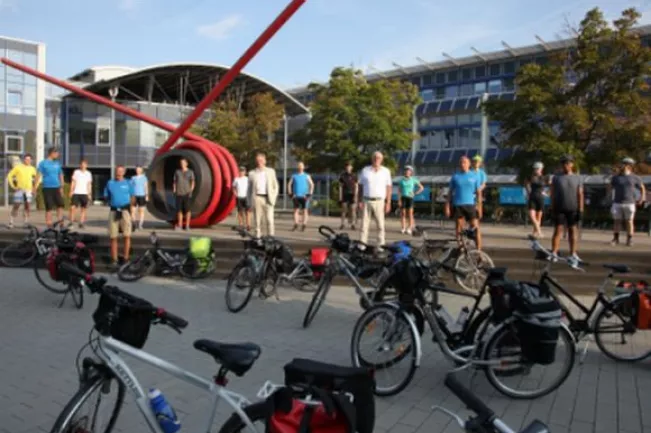
Elective: Tour de Corporate Social Responsibility - Discover the EU
Experience Europe: Where do we come from, where are we, where are we going?
Places full of beauty, horror, wonder, swearing, diversity, complexity – and above all sweat! A place of peace, and a Corona hotspot: Europe! Many ambiguous impressions and images send a clear message: peace and freedom in Europe are not a given, but the result of hard, difficult and permanent work. The Nazi fortress Vogelsang, surrounded by stunning nature, the Siegfried Line stretching across a flowery meadow, or the American soldiers' graves in the sunny Ardennes foothills near Maastricht show our difficult past. Cycling the Vennbahn trail, where you never know whether you are in Germany or Belgium, shows us how relaxed the present really is. The variety of beers on offer at the station bistro in Raeren suggest that you are probably on the Belgian side. In the end it doesn't matter: it's far too hot for beer, and your aching backside cares little for nationality. Only experts can tell whether they're in Germany, the Netherlands or Belgium by looking at beer brands, fries, liquorice, rice pie and poffertjes. And every cultural particularity is valuable! It shows that this place called Europe is not a fiction, abstraction or bureaucratic monster, but existed before the nations discovered who they were. There's no better symbol for this than Charlemagne's throne at the Aachen Cathedral: Europe's power concentrated on a few plain marble slabs.
Does this message reach tired students? Starting with the welcoming speeches by H-BRS President Hartmut Ihne and Rhein-Sieg District Councilman Sebastian Schuster at Sankt Augustin campus, followed by a compelling lecture by Alexandra Geese, member of the European Parliament, on the current state of European unification under the shade of the trees at Bonn's Hofgarten, guided tours of Vogelsang Castle, Aachen Cathedral, the American military cemetery in Margraten, and short lectures and thoughts on the Maastricht Treaties and a difficult European energy policy at the Inden mine site, there was lots to discover about Europe. Was this too much to remember? Or understand the connections? Was there still space to develop visions? With 35°C in the shade and few clouds, the issues were virtually "burned" into our minds, and the only visions left were related to ice cream and shade. Where are we heading? Hopefully downhill! And yet it grew on us that beyond European values, Europe seems to be a value in itself. This flower of perception enjoyed some extra watering on the last day! Let's say there was no need to further demonstrate that climate change produces both drought and heavy rainfall...
What could business managers learn from this trip? Teamwork and trust work better than going solo, cycling up the climbs in the Eiffel and Ardennes requires careful resource allocation, but leads to new heights, but what looks nice (old town of Monschau) doesn't always have to feel nice (restaurant closed, empty stomach). Setting big goals, going town to town, and respecting the mountains, endurance and finally making it are special experiences both for teams and for each individual. On top, while Corona is real and brings considerable limitations, it always forces us to find new ways, thoughts and teaching formats. But it's always on us to take the first step.
[ Top of page ]
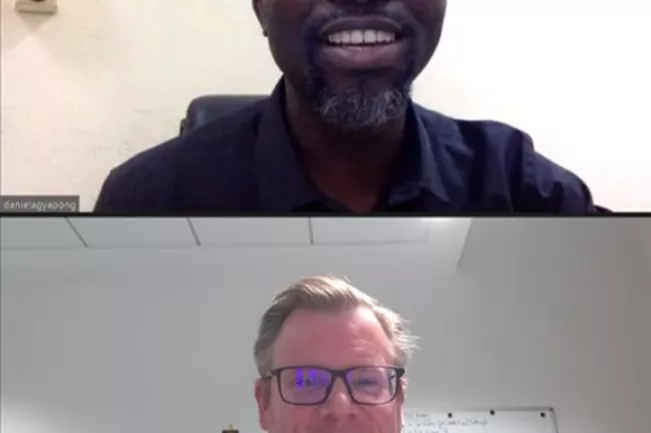
International teaching project "Codeshare Teaching and Learning" started in the 2020/21 winter semester
In the 2020/21 winter semester, the international digital teaching project "Codeshare Teaching and Learning", funded by the German Academic Exchange Service (DAAD), started in the International Business programme.
Initiated by Prof. Ralf Meyer in cooperation with Prof. Daniel Agyapong from our Ghanaian partner university, the joint module "Current Topics in Global Finance" was offered for the first time for students of the H-BRS and the University of Cape Coast. The digital class brought together 30 students from the two partner universities for online lectures and international team projects.
Following the principle of code sharing, where several airlines offer joint flights, we plan to offer additional courses from the curriculums of H-BRS and our partners for each other's students. This allows H-BRS students to pick different courses from our partner universities. Each of these courses will bring together students from three international partner institutions to share their individual skills and cultural perspectives. In addition to expanding the courses offered for our International Business programme, this programme allows students to gain more international and intercultural experience.
We already organized a joint international project in the 2019 summer semester where students from the specialisation International Financial Management studied the differences in mobile payments between different African and European countries. We've continued to build this collaboration, which has now evolved into the Codeshare Teaching and Learning project.
In addition to the University of Cape Coast in Ghana, we were able to win the South Eastern Finland University of Applied Sciences (XAMK) for the 2021 summer semester. In the 2021 summer semester, we are offering two courses from this project, which H-BRS students can choose as elective courses. Following an eight-week phase of courses in March and April 2021, students from the partner universities will then team up for different learning formats.
We are also planning a summer school for the summer semester holidays. We use a blended learning format, where students complete a four-week digital phase with up to eight intensive courses from different partner universities combined with asynchronous learning elements. The summer school is intended to conclude with one week on site for the students from different countries, provided that travelling and larger gatherings will be possible by then.
Since the current situation makes international stays difficult, this project is an interesting addition to our usual offers. Codeshare Teaching and Learning will continue to be an exciting addition for students at all involved universities, even when mobility restrictions subside.
The project is funded by the German Academic Exchange Service (DAAD) as one of more than 50 projects throughout Germany under the International Virtual Academic Collaboration (IVAC) project.
Further information on the course programme and the planned summer school will follow shortly.
[ Top of page ]
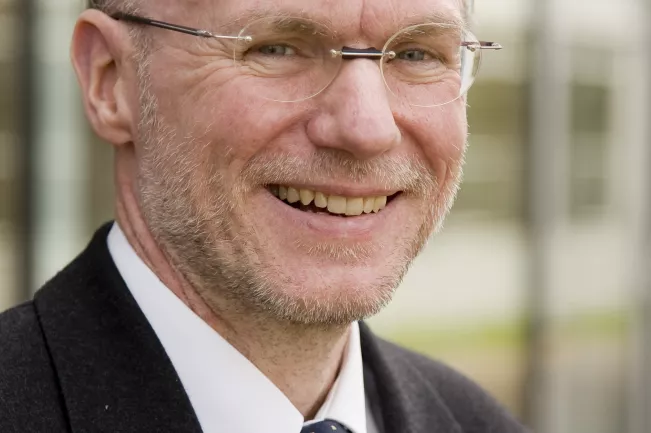
Prof. Dr. Krickhahn appointed adjunct professor
On 23 December 2020, Dr. Thomas Krickhahn was appointed adjunct professor for business administration, especially for methods of empirical social research and business ethics. We would like to take this opportunity to congratulate him warmly on his scientific achievements and outstanding career.
Prof. Dr Krickhahn expresses his vision at H-BRS as follows:
In an era declared as "post-modern" and "post-factual," I think it's especially important to teach students solid skills in fact-based, empirical social studies and statistics. At the same time, with the global trends we are facing, such as climate change, loss of biodiversity and resources, I do think that the academic field of business studies must be reconsidered to focus not just on business profits but also on social responsibility. We therefore need to connect research and responsibility and integrate this into our teaching. The position was designed with this in mind, and this is my vision as a professor.
To carry on this responsibility after my retirement, I will continue to serve as a volunteer department member of the Centre for Ethics and Responsibility (ZEV) (Centre for Ethics and Responsibility faculty page on H-BRS website). I will also continue to volunteer as a lecturer in the interdisciplinary course "Nachhaltigkeit fachbereichsübergreifend" (Intersdisciplinary Sustainability), which is a cooperation between the departments of Natural Sciences and Management Sciences under the concept "Studium Verantwortung" (Studying Responsibility) of the Centre for Ethics and Responsibility. My course "Corporate Social Responsibility Practice Project" for masters' students in Business Psychology also has a strong tie to business ethics. Finally, there are plans for me to continue offering the statistics courses in the area of quantitative methods of empirical economics for business management students at the Department of Management Sciences.
Another current topic is a book I plan to write in connection with my research project about "Responsibility and central social terminology connected to it." Last but not least, I plan to continue volunteering as a mentor for refugee students for the "Studienstiftung des deutschen Volkes" and of course to keep supervising final theses in the field of business ethics.
[ Top of page ]
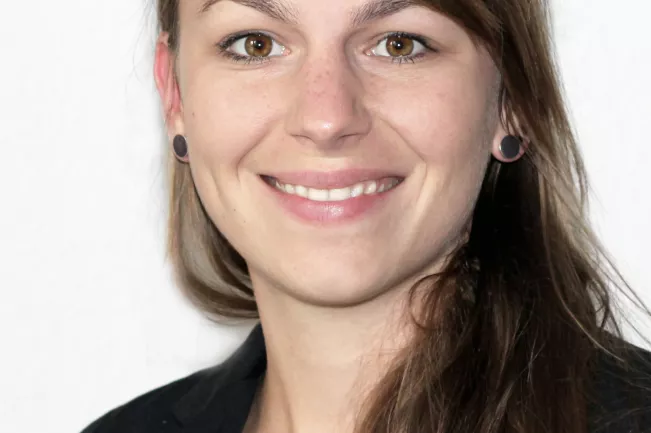
Christina Pakusch defends her dissertation
On 18 December 2020, Christina Pakusch defended her dissertation titled "Technology Assessment of Autonomous Driving – Are Shared Autonomous Vehicles Ecologically and Socially Sustainable?". Shared autonomous vehicles offer great potential for more sustainable mobility. Some experts believe that these mobility services, often referred to as driverless taxis, could propel the development away from car ownership towards flexible mobility on demand. Her dissertation consists of several publications on the possible technological consequences of shared autonomous vehicles, such as unintended modal shifts and the impact on the taxi industry. Her work shows that there is a real risk of undesirable modal shifts – such as users of ecomobility (such as public transport) shifting to new autonomous mobility services, thereby increasing instead of reducing traffic problems. Taxi drivers being crowded out by autonomous driving, as many experts assume, is also not inevitable, not least due to the many dependent and mobility-impaired people who need taxis with a human driver. Her important research contribution was awarded the grade "summa cum laude."
The dissertation was written as a cooperation between the Department of Management Sciences at H-BRS and the University of Siegen. It was supervised by Prof. Dr. Gunnar Stevens (IT security and consumer IT at the University of Siegen) as primary supervisor and Prof. Dr. Dirk Schreiber from the Department of Management Sciences at H-BRS as secondary supervisor.
Christina Pakusch's research was published in journals such as Sustainability und Travel Behaviour and Society and presented at conferences such as ICT for Sustainability.
[ Top of page ]

New partner universities for our department
In 2019 and 2020, the Department of Management Sciences forged new cooperations with international institutions to improve international mobility for students and staff.
In 2019 we closed an agreement with the Fundació Universitat Autònoma de Barcelona, which allows our students to enter the "pre-established programme" against payment of a fee.
In 2020, we closed an Erasmus cooperation with the Universidad de Jaén in Spain. The Erasmus agreement allows us to exchange 5 students for 6 months every academic year (only on bachelor's level). There are also plans to exchange staff.
We also won new partners in Italy in 2020 by closing Erasmus agreements with the Università Carlo Cattaneo (LIUC) and Università degli Studi Internazionali di Roma (UNINT). The Erasmus contract with the Universitá Carlo Cattaneo permits us to exchange 2 students for 5 months per academic year (bachelor's and master's level). The agreement also covers staff exchanges. Our agreement with the Università degli Studi Internazionali di Roma permits us to exchange 2 bachelor's and 2 master's students per academic year. The contract also covers staff exchanges.
[ Top of page ]
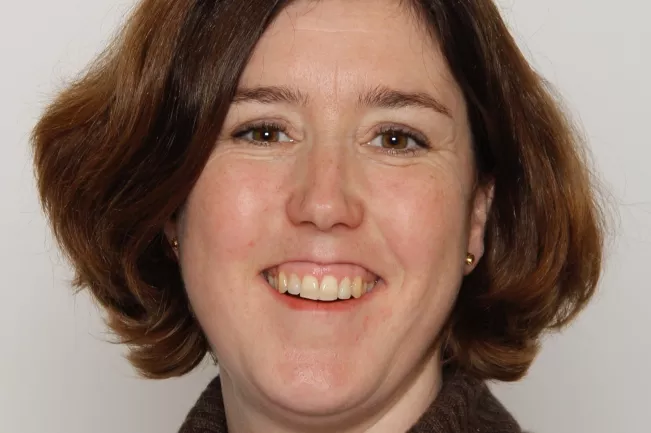
„Programme for Excellence“ during Corona – new lecturers
As H-BRS celebrates its 25th anniversary, our department's Programme for Excellence is celebrating its 15th.
Students who wish to apply for our internal scholarship programme must have good grades in school and university and enjoy striving to maximize their impact. On average, we've chosen around 10 students per year from all of our department's bachelor's programmes.
Corona posed exceptional challenges for our Programme for Excellence, since our entire winter semester curriculum was switched to virtual learning.
Seminars supported under this programme include "Modern business etiquette for success" and "Intercultural communication for Eastern Europe, USA, Singapore, China, Japan", which were managed with outstanding skill by Gabriele Schlegel for many years. Some will already know her as a columnist for the German business newspaper Handelsblatt. As the director of Business Behaviour, she supported the participants of our Programme for Excellence since its launch 15 years ago with great insight and humour.
Ms. Schlegel retired for the 2020/21 winter semester and handed over her seminars to Dr. Ines Braun-Balzer, who is upholding the tradition while switching to virtual teaching. Dr. Braun-Balzer grew up in Switzerland and completed earned her PhD in art history in the summer of 2015. She has since worked as a consultant on intercultural issues.
We were also very pleased with the participation in our virtual Christmas market, which featured a keynote by our alumnus Markus Dalka. He gave our students valuable tips on the theory and practice of self-marketing for graduates. Since this event also worked wonderfully online, we are considering continuing with this format to allow remote alumni to participate.
[ Top of page ]
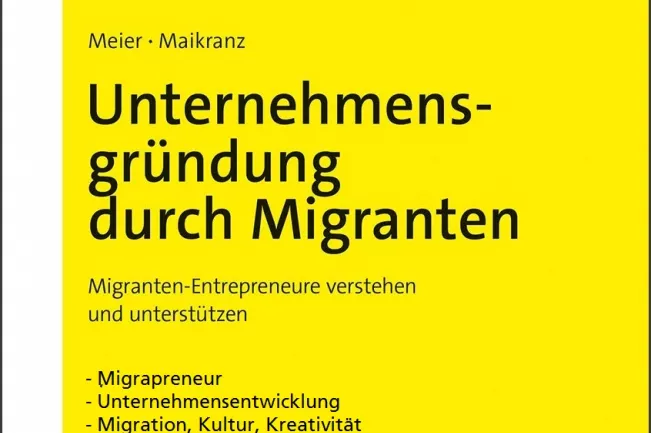
Textbook on migrant entrepreneurs
Both our society and companies are becoming more diverse, so that today one in five founders have a migratory background.
Migrants are no longer just starting restaurants, grocery stores or import/export businesses. Migrants found businesses in all industries and at all qualification levels, from construction to industrial enterprises to knowledge and technology services.
Startups are seen as the job engine of our economy and the German government sees self-employed people with a migratory background as a strong economic factor (cf. Nationaler Aktionsplan Integration, 2018).
International praise focuses not just on Germany's successful economy or on its being a dream destination for migrants, but also on the predominating character of German society. The Economist writes "[Cool Germany] is entering a new era. It is becoming more diverse, open, informal and hip." (The Economist, 14 April 2018) and the EU Commission writes: "The provision of training, mentoring, funding or other services is not a goal in itself, but should translate into concrete results in terms of business creation and growth, the economic and social integration of migrant entrepreneurs in the host community, and the benefits for the community" (EU-Commission: Evaluating and Analysis of Good Practices in Promoting and Supporting Migrant Entrepreneurship. Guide Book, Brussels 2016, page 14).
Entrepreneurs need encouragement for their ideas and start-up plans; there should be conceptual and economically viable support from investors and different business development agencies.
This book presents practical challenges, intercultural particularities and examples of migrant startups. This book serves as a comprehensive reference on entrepreneurship in general and on migration society: the business associations (such as the Chamber of Industry and Commerce or the Cologne Chamber of Crafts), business promotion agencies and start-up consultants, as well as the NGOs supporting migrants.
The authors
Prof. Dr. Harald Meier, H-BRS, brings decades of experience in intercultural collaboration in practice and training as well as related research and teaching. He has authored successful management books and has been working with diverse groups on different continents for 20 years, especially in entrepreneurship training.
Economist Franz C. Maikranz is university lecturer and founding director of CENTIM (Centre for Entrepreneurship, Innovation and SMEs) at H-BRS. He has been recognized for decades as an expert and author on entrepreneurship, start-ups and long-term business success and has worked as a management consultant for various start-ups, acquisitions and company sales. His research focuses on developing the ideal start-up ecosystem.
[ Top of page ]

Portrait of Prof. Dr. Alexander Boden
Alexander Boden joined the Department of Management Sciences at Sankt Augustin campus in September 2020 as Professor of Business Management, in particular Software Engineering. He conducts research and teaches in the field of business and consumer IT and will be particularly involved in the new Institute for Digital Consumption (IVI), which started on 1 January 2021 as a departmental institute.
Mr. Boden currently teaches the courses "Software Engineering" (specialisation in Business Information Systems), "Data Science with Python" (specialisation in Business Information Systems), "Applied IT Innovation Management" and "Case Studies in Information Management" in the master's programme in Innovation and Information Management. In addition, he offers the course "Introduction to Business Information Systems" and the elective "Usable Privacy & Security" in the bachelor's programme and supervises a practical project on "Digitalisation of the Consumer Economy". Mr. Boden is also a member of the H-BRS Graduate Institute.
Alexander Boden studied cultural anthropology at the University of Bonn. After graduating in 2005, he completed his PhD in business information systems at the University of Siegen. His research focused on an interdisciplinary topic between software technology and social sciences taking the example of internationally distributed software development in SMEs. His dissertation was awarded the 2012 research prize of the Siegen-Wittgenstein district. Fellowships took him to Tomsk in Siberia, to the University of Victoria in Canada, and to the University of Lancaster in the UK.
Mr. Boden has been employed at the Fraunhofer Institute for Applied Information Technology FIT in the area of usability and user experience design since 2013, where he is currently continuing a number of research projects. Since his habilitation in 2019, Mr. Boden has earned permission to teach (venia legendi) in business information systems at the University of Siegen.
Prof. Boden's academic profile is characterised by his interdisciplinary expertise. He studies applied business and consumer information systems, conducts empirical studies of technology use in work and private settings, as well as the design, introduction of, research into and adoption of new support tools that can be customised by users. His focus points include digital consumption, usable privacy and security as well as sustainability and ethical aspects of digitisation.
Alexander Boden lives in Bonn-Endenich with his wife and daughter.
[ Top of page ]

Practical projects
The 2020/21 winter semester saw some more new business and institutional cooperations at the Department of Management Sciences. The projects change every semester to ensure continuous quality and highlight current issues. This year's topics include:
- Modelling of departmental processes (H-BRS, Department of Management Sciences) and creation of a process map
- Social business
- Cloud Lab
- Further development of the LEGO factory simulation/LEAN method training
- Digitisation in the consumer economy
- Projects in social entrepreneurship
- Digitisation of customer relationships
- Production logistics/quality management
- Obstkäppchen
Click here for details on the practical projects.
[ Top of page ]
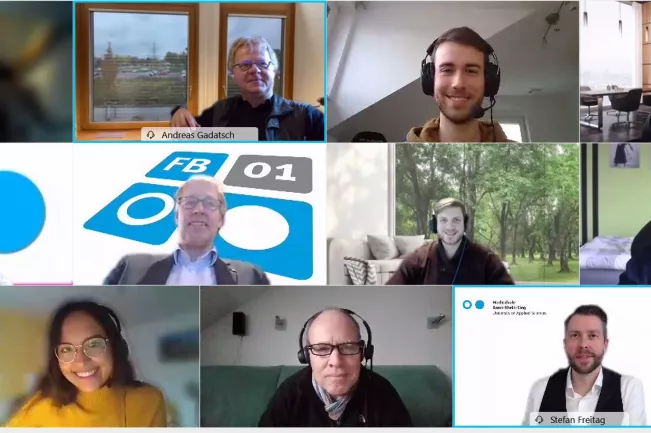
Completion of the practical project
Students created a draft model of a process map for the Department of Management Sciences. One of the processes in the map is the coordination of first semester students. Students mapped this process successfully by interviewing stakeholders in this department and creating a model. They also performed a utility analysis of a business process management software (BPMS) tool. Business process management software allows central storage and flexible customizing of process models and makes process implementation more realistic. Finally, the students presented and rated the results online together with the stakeholders.
[ Top of page ]
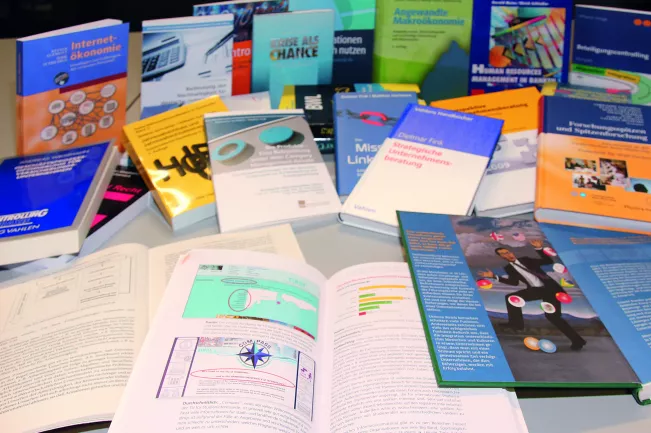
New publications of our department
Members of our department produced new publications in 2019, 2020 and 2021.
Click here to read more about current publications.
[ Top of page ]

News and events
Latest information about dates and events for the 2020/21 winter semester and a preview of the 2021 summer semester.
Read more about the current dates and the outlook for the 2021 summer semester here.
[ Top of page ]
Legal notice
Hochschule Bonn-Rhein-Sieg
Department of Management Sciences, Sankt Augustin Campus
Grantham-Allee 20
D-53757 Sankt Augustin
Germany
Department of Management Sciences, Rheinbach Campus
von-Liebig-Str. 20
D-53359 Rheinbach
Germany
Editorial staff:
Diplom-Betriebswirtin (FH) Sonja Atai
Phone: +49 2241 865 106
Fax: +49 2241 865 8106
E-Mail Sonja Atai
Diplom-Betriebswirtin (FH) Anne Schaefer
Phone: +49 2241 865 427
Fax: +49 2241 865 8427
E-Mail Anne Schaefer
Frequency of publication: twice a year
Please send an email to the editorial staff if you no longer wish to receive the newsletter in the future.
[ Top of page ]